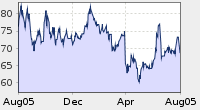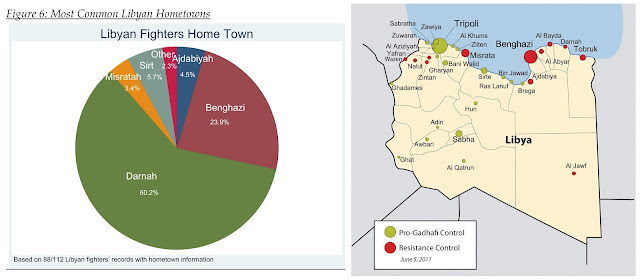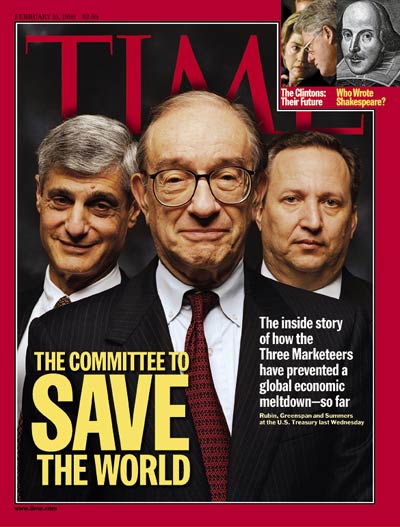Submitted by Michael Snyder via The Economic Collapse blog,
Someone wants to get the United States into a war with Syria very, very badly. Cui bono is an old Latin phrase that is still commonly used, and it roughly means “to whose benefit?” The key to figuring out who is really behind the push for war is to look at who will benefit from that war. If a full-blown war erupts between the United States and Syria, it will not be good for the United States, it will not be good for Israel, it will not be good for Syria, it will not be good for Iran and it will not be good for Hezbollah. The party that stands to benefit the most is Saudi Arabia, and they won’t even be doing any of the fighting.
They have been pouring billions of dollars into the conflict in Syria, but so far they have not been successful in their attempts to overthrow the Assad regime. Now the Saudis are trying to play their trump card – the U.S. military. If the Saudis are successful, they will get to pit the two greatest long-term strategic enemies of Sunni Islam against each other – the U.S. and Israel on one side and Shia Islam on the other. In such a scenario, the more damage that both sides do to each other the happier the Sunnis will be.
There would be other winners from a U.S. war with Syria as well. For example, it is well-known that Qatar wants to run a natural gas pipeline out of the Persian Gulf, through Syria and into Europe. That is why Qatar has also been pouring billions of dollars into the civil war in Syria.
So if it is really Saudi Arabia and Qatar that want to overthrow the Assad regime, why does the United States have to do the fighting?
Someone should ask Barack Obama why it is necessary for the U.S. military to do the dirty work of his Sunni Muslim friends.
Obama is promising that the upcoming attack will only be a “limited military strike” and that we will not be getting into a full-blown war with Syria.
The only way that will work is if Syria, Hezbollah and Iran all sit on their hands and do nothing to respond to the upcoming U.S. attack.
Could that happen?
Maybe.
Let’s hope so.
But if there is a response, and a U.S. naval vessel gets hit, or American blood is spilled, or rockets start raining down on Tel Aviv, the U.S. will then be engaged in a full-blown war.
That is about the last thing that we need right now.
The vast majority of Americans do not want to get embroiled in another war in the Middle East, and even a lot of top military officials are expressing “serious reservations” about attacking Syria according to the Washington Post…
The Obama administration’s plan to launch a military strike against Syria is being received with serious reservations by many in the U.S. military, which is coping with the scars of two lengthy wars and a rapidly contracting budget, according to current and former officers.
Having assumed for months that the United States was unlikely to intervene militarily in Syria, the Defense Department has been thrust onto a war footing that has made many in the armed services uneasy, according to interviews with more than a dozen military officers ranging from captains to a four-star general.
For the United States, there really is no good outcome in Syria.
If we attack and Assad stays in power, that is a bad outcome for the United States.
If we help overthrow the Assad regime, the rebels take control. But they would be even worse than Assad. They have pledged loyalty to al-Qaeda, and they are rabidly anti-American, rabidly anti-Israel and rabidly anti-western.
So why in the world should the United States get involved?
This war would not be good for Israel either. I have seen a number of supposedly pro-Israel websites out there getting very excited about the prospect of war with Syria, but that is a huge mistake.
Syria has already threatened to attack Israeli cities if the U.S. attacks Syria. If Syrian missiles start landing in the heart of Tel Aviv, Israel will respond.
And if any of those missiles have unconventional warheads, Israel will respond by absolutely destroying Damascus.
And of course a missile exchange between Syria and Israel will almost certainly draw Hezbollah into the conflict. And right now Hezbollah has 70,000 rockets aimed at Israel.
If Hezbollah starts launching those rockets, thousands upon thousands of innocent Jewish citizens will be killed.
So all of those “pro-Israel” websites out there that are getting excited about war with Syria should think twice. If you really are “pro-Israel”, you should not want this war. It would not be good for Israel.
If you want to stand with Israel, then stand for peace. This war would not achieve any positive outcomes for Israel. Even if Assad is overthrown, the rebel government that would replace him would be even more anti-Israel than Assad was.
War is hell. Ask anyone that has been in the middle of one. Why would anyone want to see American blood spilled, Israeli blood spilled or Syrian blood spilled?
If the Saudis want this war so badly, they should go and fight it. Everyone knows that the Saudis have been bankrolling the rebels. At this point, even CNN is openly admitting this…
It is an open secret that Saudi Arabia is using Jordan to smuggle weapons into Syria for the rebels. Jordan says it is doing all it can to prevent that and does not want to inflame the situation in Syria.
And Assad certainly knows who is behind the civil war in his country. The following is an excerpt from a recent interview with Assad…
Of course it is well known that countries, such as Saudi Arabia, who hold the purse strings can shape and manipulate them to suit their own interests.
Ideologically, these countries mobilize them through direct or indirect means as extremist tools. If they declare that Muslims must pursue Jihad in Syria, thousands of fighters will respond.
Financially, those who finance and arm such groups can instruct them to carry out acts of terrorism and spread anarchy. The influence over them is synergized when a country such as Saudi Arabia directs them through both the Wahhabi ideology and their financial means.
And shortly after the British Parliament voted against military intervention in Syria, Saudi Arabia raised their level of “defense readiness” from “five” to “two” in a clear sign that they fully expect a war to happen…
Saudi Arabia, a supporter of rebels fighting to topple President Bashar al-Assad, has raised its level of military alertness in anticipation of a possible Western strike in Syria, sources familiar with the matter said on Friday.
The United States has been calling for punitive action against Assad’s government for a suspected poison gas attack on a Damascus suburb on August 21 that killed hundreds of people.
Saudi Arabia’s defense readiness has been raised to “two” from “five”, a Saudi military source who declined to be named told Reuters. “One” is the highest level of alert.
And guess who has been supplying the rebels in Syria with chemical weapons?
According to Associated Press correspondent Dale Gavlak, it has been the Saudis…
Syrian rebels in the Damascus suburb of Ghouta have admitted to Associated Press correspondent Dale Gavlak that they were responsible for last week’s chemical weapons incident which western powers have blamed on Bashar Al-Assad’s forces, revealing that the casualties were the result of an accident caused by rebels mishandling chemical weapons provided to them by Saudi Arabia.
“From numerous interviews with doctors, Ghouta residents, rebel fighters and their families….many believe that certain rebels received chemical weapons via the Saudi intelligence chief, Prince Bandar bin Sultan, and were responsible for carrying out the (deadly) gas attack,” writes Gavlak.
And this is someone that isn’t just fresh out of journalism school. As Paul Joseph Watson noted, “Dale Gavlak’s credibility is very impressive. He has been a Middle East correspondent for the Associated Press for two decades and has also worked for National Public Radio (NPR) and written articles for BBC News.”
The Voice of Russia has also been reporting on Gavlak’s bombshell findings…
The rebels noted it was a result of an accident caused by rebels mishandling chemical weapons provided to them.
“My son came to me two weeks ago asking what I thought the weapons were that he had been asked to carry,” said Abu Abdel-Moneim, the father of a rebel fighting to unseat Assad, who lives in Ghouta.
As Gavlak reports, Abdel-Moneim said his son and 12 other rebels died in a weapons storage tunnel. The father stated the weapons were provided to rebel forces by a Saudi militant, known as Abu Ayesha, describing them as having a “tube-like structure” while others were like a “huge gas bottle.”
“They didn’t tell us what these arms were or how to use them,” complained a female fighter named ‘K’. “We didn’t know they were chemical weapons. We never imagined they were chemical weapons.”
“When Saudi Prince Bandar gives such weapons to people, he must give them to those who know how to handle and use them,” she warned. She, like other Syrians, do not want to use their full names for fear of retribution.
Gavlak also refers to an article in the UK’s Daily Telegraph about secret Russian-Saudi talks stating that Prince Bandar threatened Russian President Vladimir Putin with terror attacks at next year’s Winter Olympics in Sochi if Russia doesn’t agree to change its stance on Syria.
“Prince Bandar pledged to safeguard Russia’s naval base in Syria if the Assad regime is toppled, but he also hinted at Chechen terrorist attacks on Russia’s Winter Olympics in Sochi if there is no accord,” the article stated.
“I can give you a guarantee to protect the Winter Olympics next year. The Chechen groups that threaten the security of the games are controlled by us,” Saudi Prince allegedly told Vladimir Putin.
Yes, the Saudis were so desperate to get the Russians to stand down and allow an attack on Syria that they actually threatened them. Zero Hedge published some additional details on the meeting between Saudi intelligence chief Prince Bandar bin Sultan and Russian President Vladimir Putin…
Bandar told Putin, “There are many common values and goals that bring us together, most notably the fight against terrorism and extremism all over the world. Russia, the US, the EU and the Saudis agree on promoting and consolidating international peace and security. The terrorist threat is growing in light of the phenomena spawned by the Arab Spring. We have lost some regimes. And what we got in return were terrorist experiences, as evidenced by the experience of the Muslim Brotherhood in Egypt and the extremist groups in Libya. … As an example, I can give you a guarantee to protect the Winter Olympics in the city of Sochi on the Black Sea next year. The Chechen groups that threaten the security of the games are controlled by us, and they will not move in the Syrian territory’s direction without coordinating with us. These groups do not scare us. We use them in the face of the Syrian regime but they will have no role or influence in Syria’s political future.”
It is good of the Saudis to admit they control a terrorist organization that “threatens the security” of the Sochi 2014 Olympic games, and that house of Saud uses “in the face of the Syrian regime.” Perhaps the next time there is a bombing in Boston by some Chechen-related terrorists, someone can inquire Saudi Arabia what, if anything, they knew about that.
But the piece de resistance is what happened at the end of the dialogue between the two leaders. It was, in not so many words, a threat by Saudi Arabia aimed squarely at Russia:
As soon as Putin finished his speech, Prince Bandar warned that in light of the course of the talks, things were likely to intensify, especially in the Syrian arena, although he appreciated the Russians’ understanding of Saudi Arabia’s position on Egypt and their readiness to support the Egyptian army despite their fears for Egypt’s future.
The head of the Saudi intelligence services said that the dispute over the approach to the Syrian issue leads to the conclusion that “there is no escape from the military option, because it is the only currently available choice given that the political settlement ended in stalemate. We believe that the Geneva II Conference will be very difficult in light of this raging situation.”
At the end of the meeting, the Russian and Saudi sides agreed to continue talks, provided that the current meeting remained under wraps. This was before one of the two sides leaked it via the Russian press.
Are you starting to get the picture?
The Saudis are absolutely determined to make this war happen, and they expect us to do the fighting.
And Barack Obama plans to go ahead and attack Syria without the support of the American people or the approval of Congress.
According to a new NBC News poll that was just released, nearly 80 percent of all Americans want Congress to approve a strike on Syria before it happens.
And according to Politico, more than 150 members of Congress have already signed letters demanding that Obama get approval from them before attacking Syria…
Already Thursday, more than 150 members of Congress have signaled their opposition to airstrikes on Syria without a congressional vote. House members circulated two separate letters circulated that were sent to the White House demanding a congressional role before military action takes place. One, authored by Rep. Scott Rigell (R-Va.), has more than 150 signatures from Democrats and Republicans. Another, started by Rep. Barbara Lee (D-Calif.), is signed by 53 Democrats, though many of them also signed Rigell’s letter.
However, is is clear that he is absolutely determined to attack Syria, and he is not going to let the U.S. Congress – even if they vote against it – or the American people stop him.
Let’s just hope that he doesn’t start World War III in the process.

















